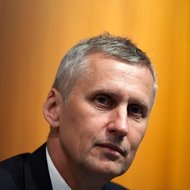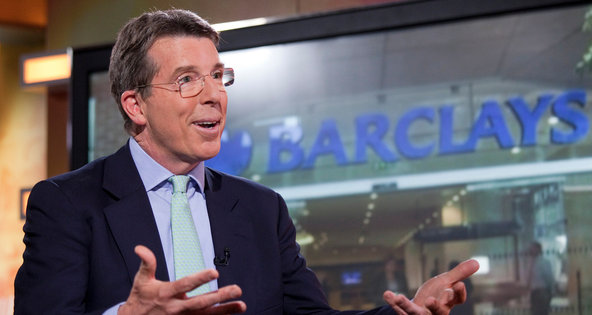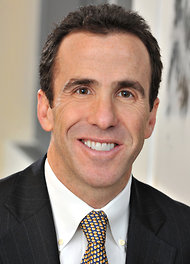 Jerome Favre/Bloomberg NewsMartin Wheatley, managing director of the Financial Services Authority, the British regulator that will conduct the review into the rate-setting process.
Jerome Favre/Bloomberg NewsMartin Wheatley, managing director of the Financial Services Authority, the British regulator that will conduct the review into the rate-setting process.
LONDON – The system at the center of the rate-rigging scandal will be overhauled as regulators respond to public anger over the manipulation of the London interbank offered rate, or Libor.
Martin Wheatley, the British regulator in charge of overhauling the rate-setting process, outlined plans on Friday that could lead to wholesale changes to Libor, which is used as a benchmark rate for more than $360 trillion of financial products, including mortgages and loans.
The reforms may lead to the scrapping of the current system, which is overseen by the British Bankers’ Association, a trade body, and making it a criminal offense to manipulate benchmark rates.
“The existing structure and governance of Libor is no longer fit for purpose and reform is needed,” said Mr. Wheatley, who is managing director of the Financial Services Authority, the British regulator. “Trust in a vital part of the financial system has been badly damaged and timely action is needed to restore it.”
The tough words from British authorities come after one of the country’s biggest banks, Barclays, agreed to a $450 million settlement with American and British officials after some of its traders and senior executives were found to have manipulated the rate for financial gain.
A number of other global financial institutions, including Citigroup and HSBC, are under investigation for their role in the scandal. Analysts estimate the combined fines and penalties for the financial services industry may total more than $20 billion.
Mr. Wheatley is in charge of a British government review of the Libor-setting process, which will offer recommendations in late September about how the rate could be changed.
On Friday, the British regulator said the inquiry was likely to lead to major changes to Libor, including the use of actual trading data to set the daily benchmark rate.
Currently, a number of banks are polled each day about what their lending costs may be if they tapped the financial markets for financing. During the recent financial crisis, so-called interbank lending between firms was drastically curtailed, which led bank executives to submit incorrect data for Libor, according to regulatory filings.
“Libor is also intended to represent unsecured interbank borrowing costs for a range of maturities, but as this type of lending has severely declined since the financial crisis, submissions are more heavily reliant on judgment,” Mr. Wheatley said.
The review will center on potential criminal sanctions against individuals that manipulate the rate. American and British authorities are currently considering the prosecution of traders implicated in the scandal, though European officials want to write new legislation to make the manipulation of Libor and other benchmark rates a criminal offense.
The overhaul of Libor also will focus on increasing governance of the rate-setting process, after authorities found deficiencies in how the system was overseen. In discussions dating back to 2008, American and British central bankers had raised concerns with the British Bankers’ Association about how the rate was governed. In response, authorities forced the trade body to increase the auditing of banks’ Libor submissions from late 2008 to improve transparency.
“Any new governance framework should ensure that the compilation process itself is subject to a much greater degree of independence, transparency and accountability,” Mr. Wheatley said on Friday.
British authorities said they would be working with American and other international counterparts as part of the wide-ranging review. Banks are expected to provide feedback on the potential reforms by early September.
With regulators continuing their investigations into the activities of global firms, banks are likely to face pressure to support the changes to Libor.
“The past few months have presented a series of very significant reputational challenges for the financial services industry,” Mr. Wheatley said. “It’s clear from the reaction to the Libor scandal that consumers think it’s important.”
Article source: http://dealbook.nytimes.com/2012/08/10/british-regulators-plan-major-overhaul-of-rate-system/?partner=rss&emc=rss


